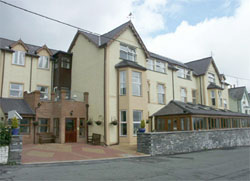Owner Occupation
If you are in the position of owning your own business premises that is great, but if you are looking to take advantage of the current lower cost of acquiring commercial bricks and mortar assets, it is very much a buyers market.
Commercial property values in the early years of the credit crunch were nearly 40% below the peak capital values that we had in mid 2007, the situation now in 2017 has improved marginally but are still below the peak, the result being that if you are looking to expand your business and move to larger premises or the landlord of your rented premises has given you the opportunity to buy them, now is the time to investigate whether it is a shrewd move or not.
 Whilst
the capital value of a commercial property is often a product of the
level of rent that could be achieved if it were being let to a third
party, the lenders' assessment is very much of you and the business
you run. Yes, in a situation where you are no longer trading, the lender
would want to know what they could rent the property for, but they are
principally looking to get comfortable with your business profitability
and the prospects for growth.
Whilst
the capital value of a commercial property is often a product of the
level of rent that could be achieved if it were being let to a third
party, the lenders' assessment is very much of you and the business
you run. Yes, in a situation where you are no longer trading, the lender
would want to know what they could rent the property for, but they are
principally looking to get comfortable with your business profitability
and the prospects for growth.
With that in mind they want any application supported by a robust business plan, protected in such a way that the business could repay the debt if you are no longer around and generating sufficient cashflow to ensure the loan can be serviced.
Borrowing terms are slightly more flexible than investment mortgages in that certain lenders will consider lending up to 80% of the property value. If the property is being purchased as part of a business purchase, this will generally determine the amount that can be borrowed, not the overall cost of the business which could well include stock and an element of goodwill. The repayment period is also a little more flexible. expect in many cases to be prepared to support any limited company borrowings with personal guarantees and some clearing banks want you to move your day to day banking facilities across to them to offer an overall package deal.
 Lenders have preferences however, many not being supportive of businesses
in what they class as riskier sectors or investing in premises which
could be a major drain on cashflow for the future because they are very
old or high maintenance. But whether you operate a shop, retail outlet,
care home, office, factory, farm or whatever we can generally find the
right lender to help you.
Lenders have preferences however, many not being supportive of businesses
in what they class as riskier sectors or investing in premises which
could be a major drain on cashflow for the future because they are very
old or high maintenance. But whether you operate a shop, retail outlet,
care home, office, factory, farm or whatever we can generally find the
right lender to help you.
Another thing to consider is whether you would be best served if the property was acquired through a pension scheme or Special Purpose Vehicle and let to the trading company. Whilst this is technically an investment mortgage proposition, the lender would treat it as though the trading company was buying and assess the financial results of this company accordingly.
Normally a lender will expect full CV's on the directors, detailed
breakdown of the company's order book,  cashflow projections, robust
business plan and at least the last three years audited or certified
accounts. with larger companies they will also want you to have access
to up to date management accounts on the basis that you should be understanding
where your business is now, not where it was up to 12 months ago when
the accounts were produced.
cashflow projections, robust
business plan and at least the last three years audited or certified
accounts. with larger companies they will also want you to have access
to up to date management accounts on the basis that you should be understanding
where your business is now, not where it was up to 12 months ago when
the accounts were produced.

